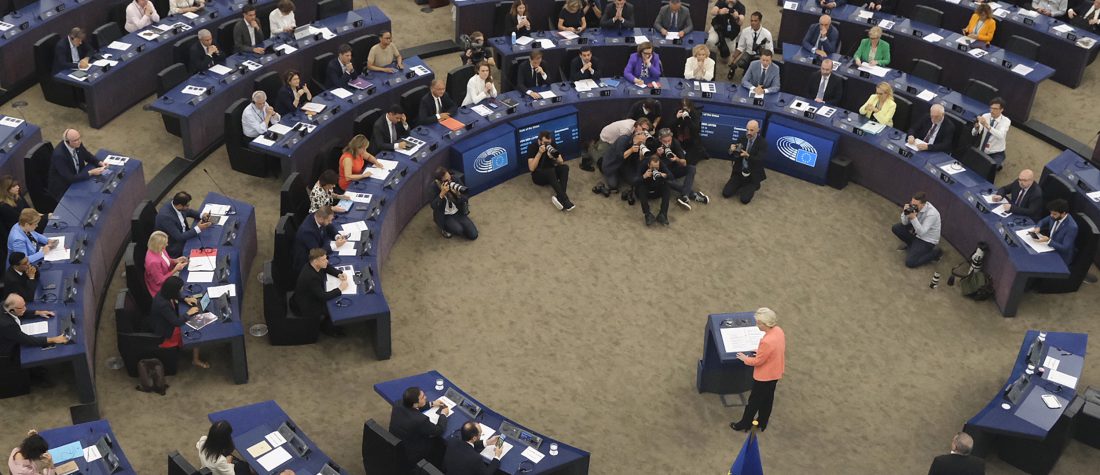The EU Deforestation Regulation (EUDR) has been the subject of much debate – and criticism – from countries exporting the commodities affected, including rubber, coffee, cocoa, palm oil and soy.
Almost all of these commodities are produced in the developing world – in southeast Asia, subSaharan Africa and Latin America. The scale of the challenge facing poor farmers in these regions is now being revealed. Some estimates show, as just one example, that 500,000 data points could now be required for every single shipment of Malaysian palm oil heading to the European Union.
For large companies that is a huge task of bureaucracy, process, staff time, and money. For many small farmers in these countries, it could be all but impossible. Around the commodity-exporting world, the same question is being asked by companies and cooperatives, and by planters and politicians: how can we comply with EUDR in the cheapest and most efficient manner?
Malaysia may have the answer. On behalf of the Malaysian palm oil sector, I conducted an assessment of the demands placed on exporters by the EUDR and then assesses them alongside the Malaysian Government’s certification standard for palm oil, known as the MSPO (Malaysian Sustainable Palm Oil) standard.
My findings are significant for Malaysia – but also for other nations in Africa, Asia and elsewhere who wish to comply with the Deforestation Regulation. A comprehensive national standard such as MSPO could be replicated for other products – coffee, cocoa, and so on – in other regions.
The MSPO is a mandatory system that prohibits deforestation after 2019 in line with the EUDR cut-off date. The system can also link imported commodities back to their source, which is essential for the EU’s traceability demands.
The core elements that MSPO delivers, which other countries should replicate for EUDR, include meeting the EUDR deforestation requirements by prohibiting deforestation after the 2019 cut-off date, providing assurance for the EUDR’s legality requirements, helping companies and farmers fulfill the due diligence statement under the EUDR, and offering a basis for a risk assessment by importers through a verification system.
Why do these technical details matter? Because the EU cannot hope to achieve its deforestation-free objectives unless partner countries are active participants. Here we have a case study: a standard developed by the Malaysian government, that can deliver the EU’s deforestation objectives and give assurance to EU companies that they are buying sustainable products. This is how objectives can be translated into real-world delivery.
But … this only works if the Commission is willing to work with – rather than just dictate to –countries in the developing world. Currently, this is not happening.
The EU has not publicly accepted the role that MSPO or similar standards can play in achieving environmental objectives. As a result, partner countries feel that the EU ignores their progress and does not recognise their commitments. This needs to change, and it can, with one simple effort: assess the existing standards and if they comply, provide formal recognition.
The Malaysian standard, MSPO, is of course not perfect. My analysis does identify areas for improvement, including aligning certificates with the EUDR due diligence requirements, for example. Such detail should not obscure the bigger picture. The EU has passed a Regulation that is very difficult and costly for small farmers. Malaysia has a solution to this problem and deserves therefore to receive recognition of the MSPO as a compliance tool. If so, other countries could follow.
If not, where is the incentive for other countries to follow Malaysia’s lead? Why would they spend money and political capital on sustainability, if the Commission is likely to simply ignore it? The short answer is: they won’t.
As we approach the upcoming European Parliament elections and the formation of a new European Commission, it is imperative that the EU reassesses its stance and embraces the collaborative approach necessary to achieve its environmental goals. If the EU is serious about a workable, practical deforestation regulation, then we need to start by recognising and rewarding the positive efforts of our trading partners. Instead, the Commission seems determined to snatch defeat from the jaws of victory.
Pierre Bois D’Enghien is a Belgian agronomist and agricultural expert


